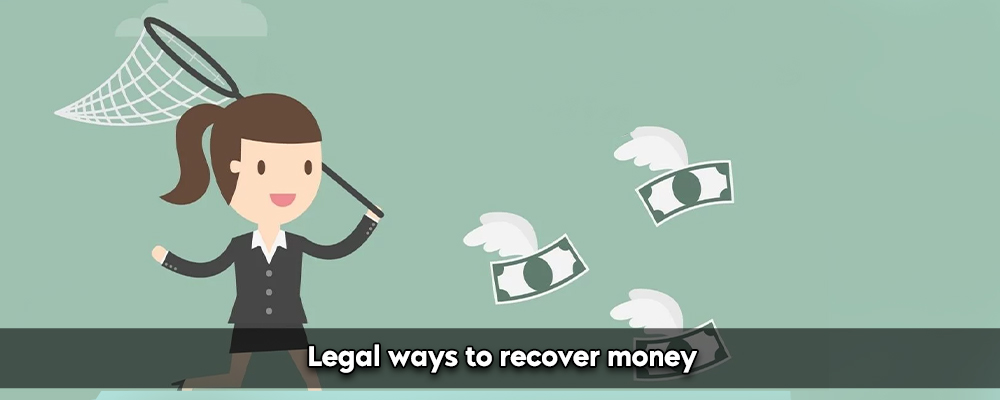One efficient corrective measure to get money back from violators is to file a legal notice for recovery of money lawsuits. The Civil Procedure Code of 1908’s Ordinance IV permits the lawsuit to be filed. According to Article 37 of the Civil Procedure Code, this is a summary prosecution, meaning the defendant is not required to mount a fair defense, which speeds up the case’s resolution.
Need A Legal Advice
The internet is not a lawyer and neither are you. Talk to a real lawyer about your legal issue

Different Ways of Debt Collection
- First, attempt to settle through negotiation with the debtor. Mediation or direct communication are two possible ways to accomplish this.
- Should negotiations fail, the debtor may receive a demand letter requesting payment of the unpaid balance. The payment due date and the repercussions of nonpayment should be made crystal clear in the letter.
- Should the demand letter prove unsuccessful, the debtor may receive a formal notice. A lawyer should send the notice, which needs to outline the amount owed, the claim’s legal foundation, and the repercussions of not paying.
- A court of law may receive a summary suit if the amount owed is set. This expedited legal procedure enables prompt debt recovery.
- A recovery suit may be filed in a court of law if the amount owed is not set. Examining witnesses and other pieces of evidence is a lengthy process.
- If the parties have agreed upon arbitration, arbitration may be used to settle the disagreement. The arbitrator’s decision must be followed by the parties.
- If the debtor is not able to make payments on the debt, they may be subject to an insolvency proceeding. The debtor may be declared bankrupt as a result, and their assets may be liquidated to settle their debts.
- If a check written out to cover a debt is returned unpaid, the debtor may be subject to check bounce procedures.
The Statute of Limitations on Money Recovery Suit Filings
In India, a lawsuit seeking monetary compensation must be filed within three years. The statute of limitations refers to this. A statute of limitations is a legal term that establishes a time limit for filing a lawsuit for a specific kind of claim. The majority of claims, including those involving negligence, debt, and breach of contract, are subject to a three-year statute of limitations for financial recovery. The three-year statute of limitations does, however, have some exceptions. For instance, the three-year statute of limitations for personal injury claims and the six-year statute of limitations for fraud claims are respectively applicable.
It’s crucial to speak with an attorney if you’re thinking about suing to recover money so you can receive guidance on the particulars of your case. Your lawyer can assist you in determining whether your claim is legitimate and whether the statute of limitations has run out. The following are some variables that may impact how long it takes to file a lawsuit to recover money:
- The kind of assertion: The time limit for bringing a lawsuit may vary depending on the kind of claim. For instance, there is a three-year statute of limitations for contract violations but a six-year statute of limitations for fraud.
- The date the claim first surfaced was: The window of time for bringing a lawsuit may also be impacted by the date the claim first materialized. The statute of limitations, for instance, would run out on January 1, 2026, if the claim first surfaced on that date.
- The date that the individual should have known or was aware of the claim: The window of time within which to file a lawsuit may also be impacted by the date on which the party knew or should have known about the claim. For instance, the statute of limitations would end on January 1, 2027, if the party had knowledge or should have known about the claim on January 1, 2024.
Where Can I File a Money Recovery Suit?
Depending on the suit’s value, a money recovery lawsuit may be filed in the District Court or the High Court. The suit may be filed in the District Court if its total value does not exceed ₹ 10 lakhs. The suit may be filed in the High Court if its value exceeds ₹ 10 lakhs. The location where the cause of action originated will determine the court’s territorial jurisdiction.
Lead India provides a variety of legal services, including free legal advice and online information. Here, you can ask a legal question and talk to a lawyer.





 Talk to a Lawyer
Talk to a Lawyer